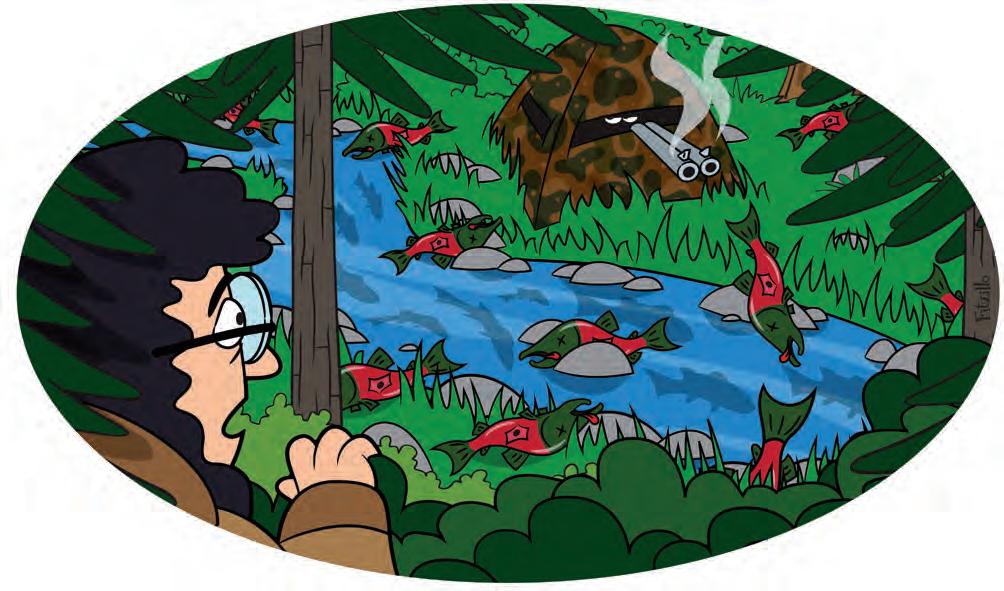
2 minute read
Of Mayflies and Muskrats: A Fisherman’s Tale
When I was a kid, the annual Mayfly hatch was almost as exciting as the first day of deer hunting season. Fishin’ and huntin’ with the family — now that’s entertainment. Hunting, in the end, turned out not to be my bag. But fishing’s dramatic. You never know what lies just beneath the surface. Might be something. Might be nothing. Toss in a baited hook or flick your rod to set a fly upon the water. Wait. The fish, if there’s a hungry one in the vicinity, checks out the offering and decides to strike. Or not.
Fishing with my folks involved digging worms, loading the boat, untangling lines, swatting mosquitos and waiting expectantly and in silence for a nibble. Except during the Mayfly hatch, when — on the right pond on a May evening when thousands of newborn bugs rise to the surface all at once — the fish lose their fishy minds and chomp just about anything that floats, especially feathers threaded on a hook just so.
The Mayfly hatch was about the only time we were sure (as sure as anything in life ever is) to catch our limits. Ten fish per person back then, enough to feed us for a week. Trout dredged in flour and corn meal, fried in bacon fat with garlic. Oh, yuh. Them’s good eatin’.
We enjoyed eating the fish as much as they enjoyed eating the Mayflies. Mayflies, on the other hand, don’t eat. No mouths. No time. Once hatched, the male lives only a day or two; the females, about five minutes. Just long enough to mate and produce eggs, which is, of course, the point.
Mayflies don’t live long; stories, on the other hand, can live forever in one incarnation or another.
At a storytelling class in Plymouth, Jane said we’d met before. Did I remember her? I didn’t…at first. Until she said, “I told you the story about the Cockermouth River.”
Knock me over with a feather. My synapses zapped. I did remember Jane and her story. It was a cockah (aka corker). Turns out she heard the story years ago from her friend Neil, who heard it from…well, you get the picture. It had been hatched and rehatched for decades.
In Ghana, storytellers traditionally say, “This is my story which I have told to you. Whether it be sweet or not sweet, let it go forth and, pray, let it come back to me some day.” Sure enough, Jane’s story had come back to me:
The Cockermouth River connects to Newfound Lake. At one time salmon ran so heavy upriver in spring you could practically walk across on their backs. Of course, when salmon head upstream to spawn, it’s illegal to fish for them. Wouldn’t be fair. They have other things on their minds.
One day Nancy — behind her house hanging laundry — heard gunshots down by the river. In some parts of the world when you hear gunshots you run the other way. But this part of the world, in those days, when you heard gunshots, you headed out to investigate. What going on? It ain’t deer season nor bird season either.
Nancy dropped her laundry basket and walked cross country through the field, through the woods, to the bank of the Cockermouth, where she spotted her neighbor Charlie sitting crosslegged with his .22 across his knees. “What are you doing?” she asked.
“Shootin’ muskrats,” he said.
Nancy looked. Beyond him in the ferns she spotted five large salmon all laid out not looking too lively.
“Muskrats, huh?”
“Yup,” Charlie said. “Scaly buggahs, ain’t they?” NH
BY REBECCA RULE / ILLUSTRATION BY BRAD FITZPATRICK












